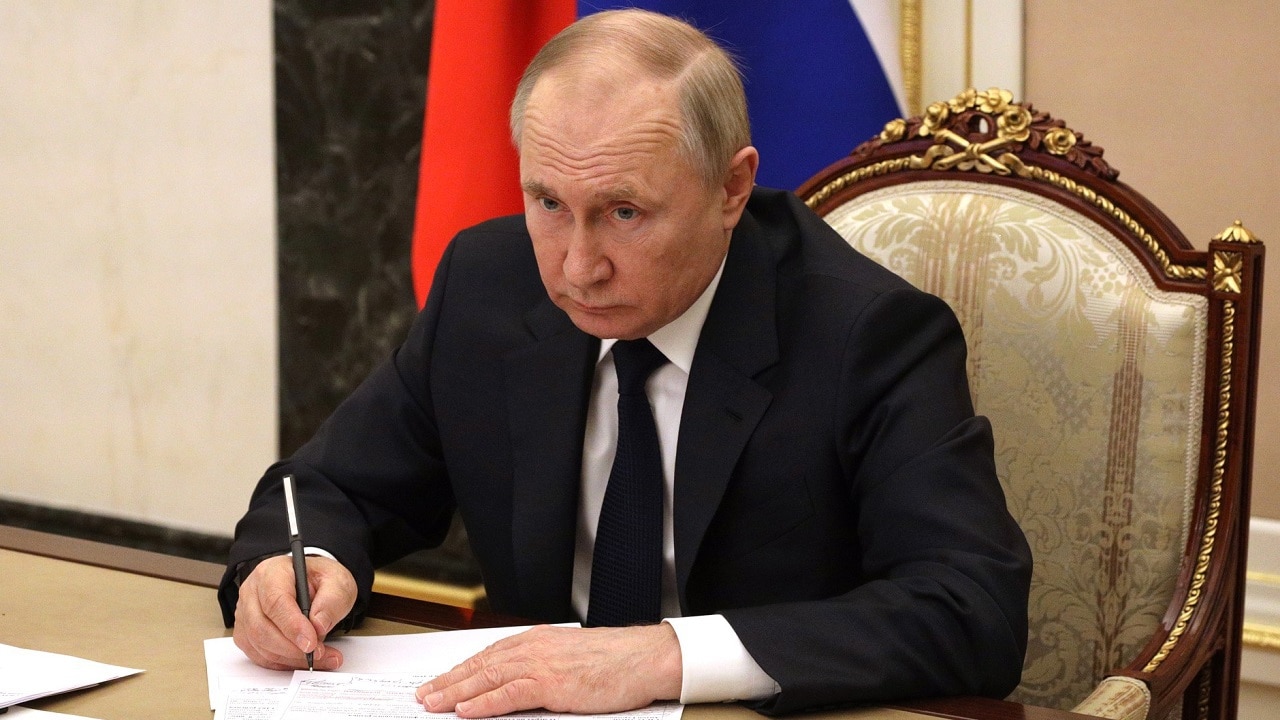Is A Coup Against Putin Really Going to Happen in Russia? Local reports suggest that Ukrainian intelligence believes that a coup is being prepared against Russian President Vladimir Putin.
On March 20, Ukrainian military intelligence officials reportedly claimed that a coup is underway.
“In the Russian economic and political elite, a group of influential people opposed to Vladimir Putin is emerging,” officials reportedly said. “Their aim is to overthrow Putin as soon as possible and restore the economic ties with the West that were destroyed as a result of the war against Ukraine.”
An unconfirmed report also suggests that military intelligence in Russia believes that Alexander Bortnikov, the head of the Russian Federal Security Service, could be installed as a successor to the Russian president.
However, retired FSB colonel and former Russian legislator Gennady Gudkov said that the idea of a coup is just “wishful thinking.”
“This is wishful thinking. Any coup is prepared in a highly secretive environment. If it’s real, people find out about it post factum,” Gudkov told Current Time TV.
Searches for “Putin Coup” At All-Time High
Talk of a coup against Putin is rife, with Google Trends data showing that online searches for “Putin coup” skyrocketed after the invasion of Ukraine and peaked between February 27 and March 4.
Since then, online searchers continue to search for information about a potential coup substantially more often than at any other time since Google Trends began.
Searches alone, however, only represent interest among the wider public about the possibility of Putin being replaced and the invasion coming to an end. So far, there is little to suggest that a coup is underway – and even if it was, we likely wouldn’t know about it.
Putin Has “Coup-Proofed” His Regime
Adam Casey, a postdoctoral fellow at the Weiser Center for Emerging Democracies at the University of Michigan, described in March how the Russian president has “coup-proofed” his regime by taking inspiration from three major mechanisms that were used under the Soviet system to prevent a coup – military counterintelligence, political commissars, and party membership for officers.
Casey describes that there is one significant element of the old Soviet system still in place in Russia, which is a “network of military counterintelligence agents posted in the armed forces.”
“That’s key to Putin’s control. Shortly after Putin came to power, the Federal Security Service (FSB) strengthened the extensive military counterintelligence presence of its KGB predecessor. Counterintelligence officers in the FSB are embedded directly in the Russian military to monitor the armed forces. When Putin ran the FSB, he referred to the counterintelligence department as a ‘mini-FSB,’” Casey writes for Foreign Policy.
Casey also describes how Putin has cultivated an environment in the military whereby there are few incentives to launch a coup against the president – starting with access to substantial funding that has allowed for large-scale modernization.
What’s more, Putin maintains several well-armed security services with a “formidable” capacity to collect intelligence outside of the capacities of the military and the Rosgvardia (the Russian National Guard) which would likely discover a coup in its very early stages and allow the Kremlin to take action and resist movements from government agencies to overthrow him.
And with renewed Western hostility towards Russia – including British Foreign Secretary Liz Truss’ suggestion that the “age of engagement with Russia is over” – Putin could cling to power as a uniting figure for the country as it enters a phase of economic restructuring and geopolitical reconfiguration.
Jack Buckby is a British author, counter-extremism researcher, and journalist based in New York. Reporting on the U.K., Europe, and the U.S., he works to analyze and understand left-wing and right-wing radicalization, and reports on Western governments’ approaches to the pressing issues of today. His books and research papers explore these themes and propose pragmatic solutions to our increasingly polarized society.

